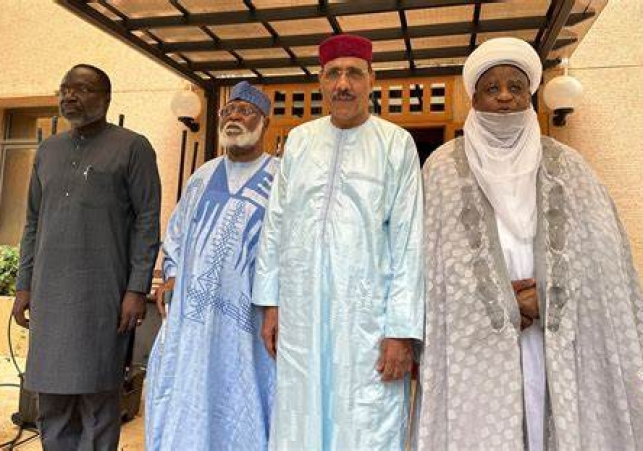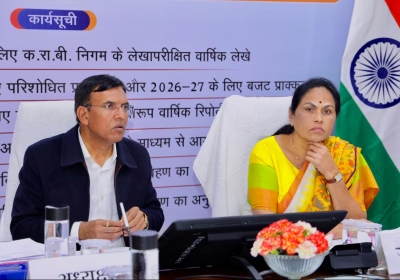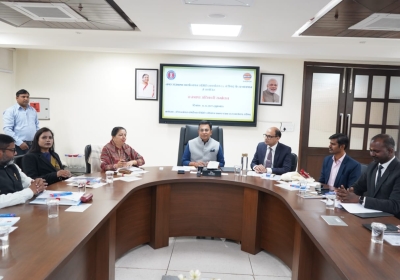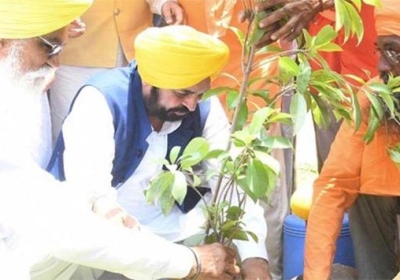
ECOWAS engages with ousted Niger President and Junta Leader
ECOWAS engages with ousted Niger President and Junta Leader amid coup crisis
- By Anubhuti --
- Sunday, 20 Aug, 2023
ECOWAS takes stronger stance, Niger's strategic importance
In the midst of the ongoing political turmoil following the July 26 coup in Niger, a delegation from the Economic Community of West African States (ECOWAS) engaged in discussions on Saturday with both the ousted President Mohamed Bazoum and Junta leader General Abdourahmane Tiani. The talks took place in the capital city of Niamey and indicate a potential shift towards negotiations in the crisis.
ECOWAS, the leading regional bloc in West Africa, has been pursuing diplomatic means to address the coup and restore democratic governance in Niger. This delegation's willingness to meet with both parties suggests a renewed openness to negotiation, following ECOWAS's recent reiteration of the option to use force as a last resort to reinstate democracy. The bloc also mentioned an undisclosed "D-Day" for possible military intervention.
Delegation meets key figures, but details remain undisclosed
The Nigerian presidential spokesperson, using the messaging platform formerly known as Twitter, confirmed the delegation's meetings with both General Abdourahmane Tiani and President Mohamed Bazoum. However, specific details about the discussions and outcomes were not shared. The engagement could signal a potential shift in the coup leaders' stance and a possible inclination towards dialogue, as they continue to face international pressure and calls for the restoration of democratic norms.
In a televised address to the nation, General Tiani expressed a preference for dialogue over conflict. He highlighted that both the junta and the people of Niger are averse to war and are open to negotiations. While the Junta holds President Bazoum in custody despite international appeals for his release, Tiani conveyed that Niger is prepared to defend itself if necessary. He emphasized that any aggression against the country would not be easily overcome.
Also Read: Tragic Building Collapse in Uttarakhand (arthparkash.com)
Additionally, Tiani outlined the Junta's plans for a transition back to democracy through a national dialogue. This dialogue aims to gather input from various sectors of society to shape a transition plan that, according to Tiani, should not exceed three years.
ECOWAS's shift and regional significance
ECOWAS has taken a firmer stance in addressing the Niger coup compared to previous coup situations in the region. The bloc's credibility is at stake, given its earlier declaration to no longer tolerate further unconstitutional seizures of power. Niger's geopolitical significance, owing to its uranium and oil resources and its role as a hub for foreign troops engaged in counterinsurgency efforts against groups linked to Al-Qaeda and Islamic State, adds complexity to the crisis.
The United States, recognizing the strategic importance of Niger, has dispatched a new ambassador to advocate for a diplomatic solution that upholds the constitutional order. The Junta's determination to resist external pressure to step down has garnered support within Niger. Thousands of Junta supporters gathered in Niamey, causing the delay of a census of civilian volunteers who might assume non-military roles in the event that ECOWAS resorts to the use of force.
In the current situation, ECOWAS's diplomatic efforts, the Junta's resilience, and international involvement intersect within the context of regional stability and democratic governance, shaping the path forward for Niger.
Also Read: Monsoon Havoc in Himachal Pradesh (arthparkash.com)





